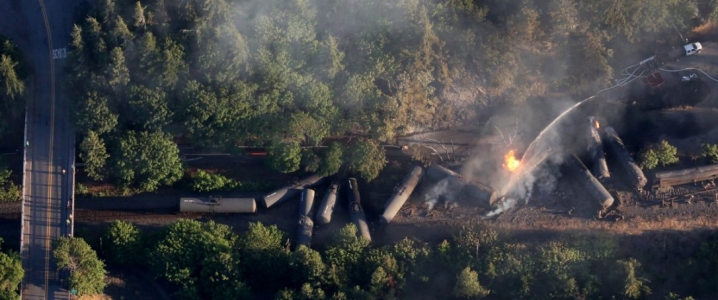The Oregon Department of Transportation raised its concerns on Thursday to the Oregon Transportation Commission, in reference to this specific type of train—crude-oil-only—which is heavier than others and might be putting greater strain on the lag bolts that connect the rails and tracks. The Oregon Department of Transportation is requesting a moratorium on the train.
Tom Fuller, the director of communications for ODOT said that without the bolts in place, the parallel rails could be pushed farther apart by the weight of the trains, which could cause a derailment. Fuller also said that the movement of the oil inside of the tanks may be a contributing factor as the oil shifts when the train is on a curve.
Crude-oil-only trains have been going through that particular section of the Columbia River Gorge for about two years, and transportation officials and state investigators are concerned that because the trains are heavier and shorter, they may be putting more pressure on the tracks, leading to broken bolts.
Fuller added that his agency and Union-Pacific tested the tracks for flaws, and those tests did not uncover any broken bolts. With that in mind, Fuller expressed concern that it is not known where else the bolts may have been used. Since the incident, Union-Pacific has increased the frequency of its inspections.






Comments